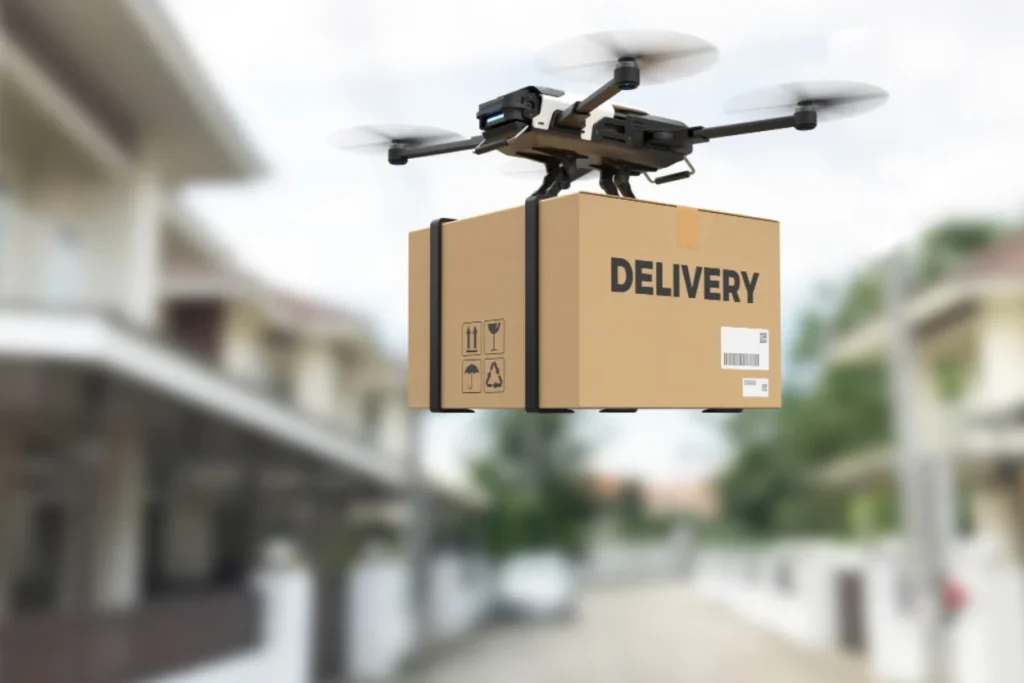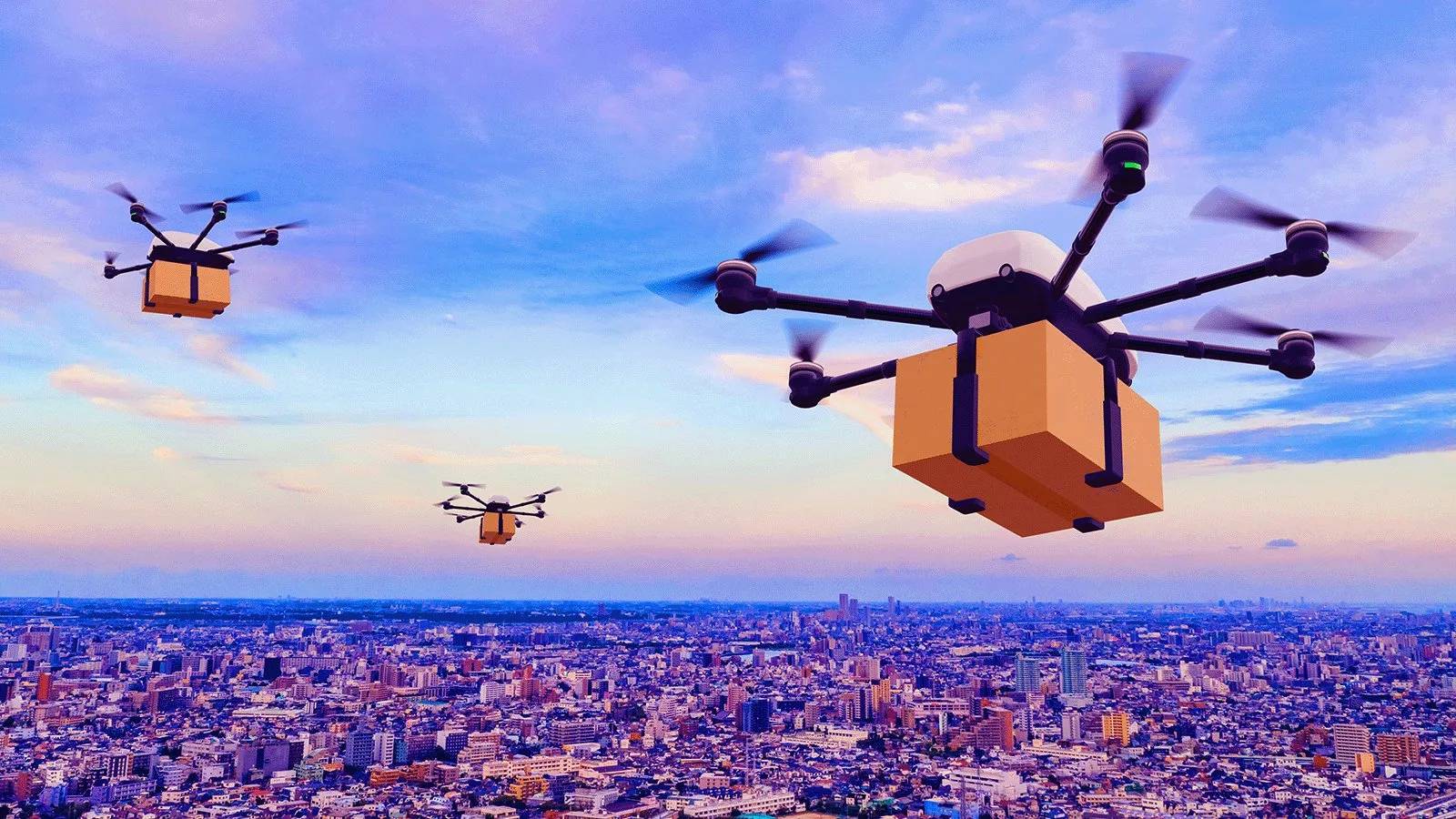GURUGRAM, India – July 19, 2025
Drone Delivery – The skies over Gurugram (Gurgaon) are buzzing with a new wave of innovation as drone delivery services transition from pilot projects to a tangible reality. This millennium city is rapidly emerging as a pioneering hub for last-mile drone logistics in India, promising to cut through infamous traffic snarls and deliver essentials at unprecedented speeds.
Several Indian drone technology companies are at the forefront of this transformation, actively running pilot programs and expanding limited commercial operations for everything from daily groceries and medicines to critical e-commerce parcels.
Table of Contents
Gurugram’s Drone Delivery Landscape Takes Flight
Leading the charge in Gurugram is Skye Air Mobility, a local player making significant inroads. They’ve launched drone delivery services for daily essentials in various housing societies, including Fresco in Sector 50, promising deliveries in as little as 7 minutes. Skye Air reports delivering approximately 1,000 packages daily across multiple condominiums in the city, using their “SkyPods” on rooftops for efficient drops and “Skye Walkers” for the final doorstep delivery.
Major logistics giants like DTDC Express and Ecom Express are actively partnering with drone firms like Skye Air, integrating these aerial solutions into their existing delivery networks to enhance efficiency and speed. Other key players like TechEagle and TSAW Drones (based in Noida but with significant interest in the Delhi-NCR region) are also contributing to the growing ecosystem, focusing on healthcare, e-commerce, and even intercity logistics.
The shift towards drone delivery is a strategic move to overcome the persistent challenges of urban congestion, reduce carbon emissions, and provide faster, more reliable service to consumers.

Navigating India’s Evolving Drone Regulations
India’s push for a robust drone ecosystem is backed by a progressive regulatory framework. The Drone Rules, 2021 (with subsequent amendments in 2022 and 2023), simplified approvals and reduced bureaucracy, creating a more favorable environment for drone operations.
- The Digital Sky Platform, managed by the Directorate General of Civil Aviation (DGCA), plays a crucial role in categorizing airspace and managing permissions.
- The government has also rolled out a Production Linked Incentive (PLI) scheme for drones, aiming to position India as a global drone manufacturing and innovation hub by 2030.
However, challenges remain. Scaling up intra-city drone deliveries in densely populated areas like Gurugram is complex, as many fall under “yellow” or “red zones” requiring specific permissions. Furthermore, clearer guidelines for BVLOS (Beyond Visual Line of Sight) operations, essential for widespread cargo delivery, are still being developed by regulators.
It’s also worth noting that local administrations, including Gurugram, occasionally impose temporary prohibitions on drone usage for security reasons, which can briefly impact operations. For instance, a ban from May to early July 2025 was implemented, though it has since expired.
Despite these hurdles, Gurugram’s proactive embrace of drone technology, coupled with a supportive national policy, signals a transformative future for urban logistics. As companies continue to innovate and regulations adapt, the sight of drones delivering packages might soon become a common part of the city’s skyline.
Keep following Duniya Daily for more such interesting news and insights!










